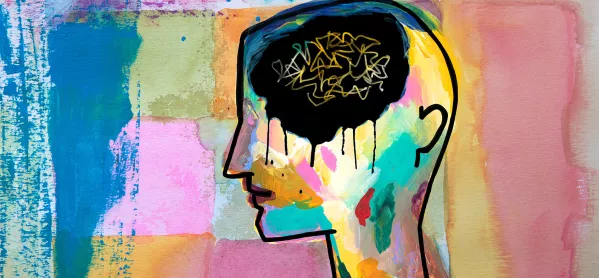
Migraines: Staff need support, not sanctions

The resignation of levelling-up minister Dehenna Davison owing to chronic migraines is a powerful example of how unbearable this condition can be.
I know from experience what migraines can be like. Mine were linked to hormones, so I suffered one headache a month, sometimes two. They could last three to five days, during which time I ate very little but tried to remain hydrated.
It was just possible to get through a full teaching day, but the moment I got home I was often violently sick, and unable to concentrate on marking, preparation or managerial tasks.
I dreaded after-school events such as parents’ evenings, and would just hope that nothing too demanding would come up.
Split shifts, where school ended and then an event started a couple of hours later, were worst of all. The stop-start allowed no relaxation and prolonged the agony.
The education issue
In other professions it is easier to take breaks, to walk away from the computer, to spread work into more manageable periods, especially if working from home.
In school, though, this is almost impossible. Teachers have to interact with 30 students, keep tasks going and respond to unexpected queries - all the things that normally make teaching enjoyable.
Many thousands of teachers suffer with migraines. The fact that three-quarters of the workforce are women may mean that teaching is a profession more impacted than most: the NHS estimates that migraines afflict one in every five women compared with one in every 15 men.
Students should not be overlooked either. The Migraine Trust estimates that children who suffer from migraines take an average of 32 days off from school because of them.
That is why it is so important that schools are conscious of migraines and work to ensure that the environmental conditions in which teachers and pupils work are suitable.
This can be as simple as ensuring that lights are not too bright, that blinds or curtains actually work - so on hot, sunny days rooms can be kept cool - and that there is good, working ventilation.
Screen time can be a problem for migraine sufferers - which, with more required reading and revision having to be done online, can make the situation worse. As such it is worth considering, where relevant, ways of reducing teaching and learning practices that might bring on migraines.
Rigid attendance policies
What would perhaps make the biggest difference for migraine sufferers is schools’ attendance and sickness policies, which are usually stacked against them and add untold stress to what is an already highly stressful situation.
For more than a decade there has been a standard system whereby any teacher who has been absent on three separate occasions within one term, or accrues seven working days’ absence in one term or 10 working days within three terms, could face a meeting with their manager.
If migraines occur even semi-regularly, it is very easy to clock up three or four occasions of absence in one term.
It’s possible that, in trying to come in during a three-day migraine, sufferers could manage an “absence sandwich” of one day off, one day in school just about functioning, then one more day off. However, this would be classed as two separate occasions of absence, so one more strike and you’d face a conversation with your manager.
If they are not satisfied with your reason for absence, you face the next stages of the sickness policy. Such policies lead to a situation where teachers who are seriously unwell punctuate their teaching with being sick in the staff toilets rather than taking a leave of absence when they need it.
Some staff over-medicate, which can lead to a further “rebound migraine”. For those suffering more severe and persistent symptoms, including visual disturbance and temporary paralysis, absence is unavoidable.
A wake-up call
The true nature of migraines and the limitations it imposes on sufferers are still not fully understood.
They are unpredictable, symptoms vary in severity and change over time, striking at the onset of puberty and worsening during menopause. For those who have not suffered from this, and the impact they have, it can be hard to comprehend.
Hopefully, though, Davison’s resignation will be a wake-up call for society in general and will encourage schools to understand how serious this condition can be. What those who suffer from migraines need most is support, not sanctions.
Yvonne Williams, who has been teaching for more than 30 years, was a member of the Department for Education Marking Policy Review Group, which looked at teacher workload in 2015-16
You need a Tes subscription to read this article
Subscribe now to read this article and get other subscriber-only content:
- Unlimited access to all Tes magazine content
- Exclusive subscriber-only stories
- Award-winning email newsletters
- Unlimited access to all Tes magazine content
- Exclusive subscriber-only stories
- Award-winning email newsletters
You need a subscription to read this article
Subscribe now to read this article and get other subscriber-only content, including:
- Unlimited access to all Tes magazine content
- Exclusive subscriber-only stories
- Award-winning email newsletters
- Unlimited access to all Tes magazine content
- Exclusive subscriber-only stories
- Award-winning email newsletters
topics in this article



